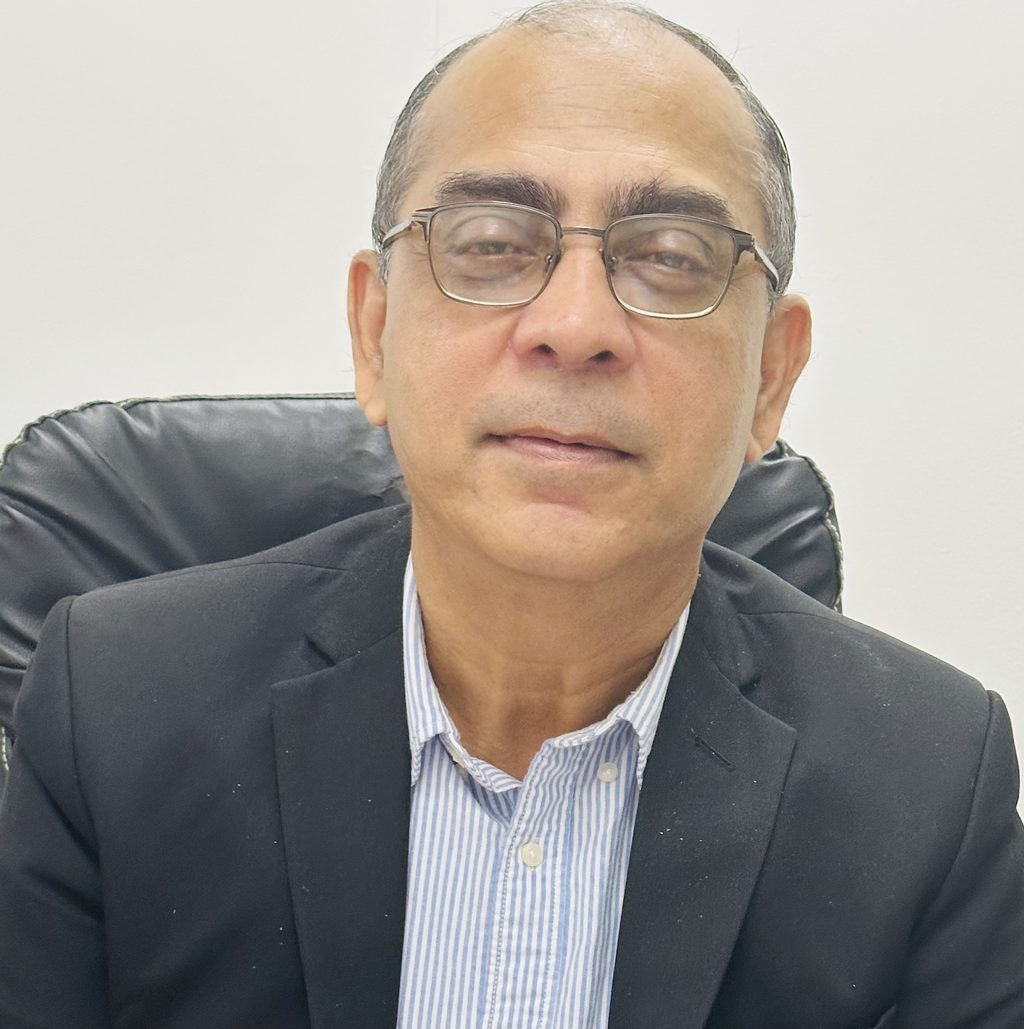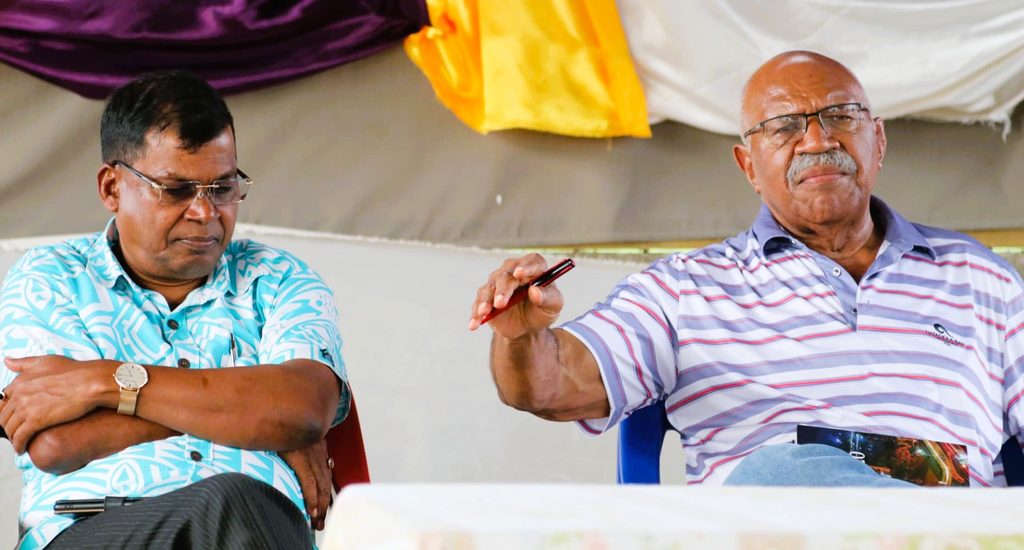FIJI may barely register on the radar of global platforms like Facebook, but their presence here contributes to what has been described as “Fiji’s $10 billion problem.”
That figure represents the estimated cost of lost development resulting from Fiji’s coups and conflicts, according to economist Professor Wadan Narsey.
The issue was highlighted by University of the South Pacific (USP) journalism head, Associate Professor Shailendra Singh, at a recent workshop on “Cybercrime and Online Safety Challenges in Fiji and the Pacific,” organised by the Online Safety Commission in Suva.
Dr Singh said ethnic tensions were among the root causes of Fiji’s coup culture, a problem that was now worsening due to racism and hate speech circulating freely on social media platforms such as Facebook and TikTok.
He warned that left unchecked, this was a threat to derail the government’s ambitious national social cohesion project.
According to Dr Singh, Fiji’s current approach to online abuse targets users but fails to address the platforms that enable and profit from harmful content.
“The bigger issue,” Dr Singh added, “is that platform owners like Facebook and TikTok are not being held accountable. They can take weeks to respond. It’s time to subject them to state legislation.”
He added that the $10 billion in lost development due to our coup culture was irrecoverable.
It represents a “huge loss for a small country like Fiji, now being compounded by the digital spread of division and misinformation.”
According to Dr Singh, the abuse, left unchecked, undermines the government’s flagship social cohesion efforts.
Weak enforcement and global indifference
Police and regulators have long expressed frustration over the lack of cooperation from major social media companies.
In 2022, Fiji Police Cybercrime officer Acting ASP Abinesh Chand told The Fiji Times that Facebook had refused to act on complaints lodged by local authorities, even when the content clearly violated national laws.
“Sometimes when we report, they say it doesn’t fall under their community standards policy,” Chand said.
“That protects the user to continue unethical behaviour online.”
He added that local authorities often relied on international partners such as Australia, New Zealand, and the FBI to handle cross-border cases.
At this week’s “National Scams Awareness Week” workshop in Suva organised by the Consumer Council of Fiji, calls were made for social media platforms to have an office in Fiji.
Rising cases and digital harm
Recent social media-related cases have underscored the urgent need for reform.
Recently, a prominent TikTok user was charged under the Online Safety Act and Crimes Act for harmful online content, while another user, was charged for insulting the modesty of a government minister.
The courts have also dealt with the viral 2020 case involving two young men who wore police uniforms in a TikTok video, a prank that led to criminal charges.
Other alarming trends include videos depicting child bullying and abuse, and politically aligned fake accounts spreading racially charged content, sometimes using AI-generated images and text.
Experts warn that such incidents erode public trust, inflame ethnic tensions, and undermine government efforts to promote unity and tolerance.
Calls for stronger laws and a more empowered regulator
Fiji made a major step forward with the enactment of the Online Safety Act in 2018, but enforcement remains limited.
Several key provisions are vague and need clarification.
Critics also argue that the Act, introduced under the previous FijiFirst government, was designed to suppress criticism, a risk that could persist under the current administration.
Dialogue Fiji executive director Nilesh Lal and other stakeholders have called for a comprehensive review of the law, saying it no longer reflects the complexity of today’s digital environment.
Fiji Media Association executive Vijay Narayan, speaking at a recent Women in Media conference, described the Online Safety Commission as “slack” — a reflection, many say, of its limited powers and chronic underfunding.
There is also a widespread public perception that reporting online abuse is “a waste of time” due to bureaucratic red tape.
“The Commission has neither the teeth nor the resources to carry out its role effectively,” one media participant noted.
Funding increases, but challenges remain
Budget data shows a steady increase in funding for the Commission, from $237,956 in 2022 to $1.5 million in the 2025–2026 budget announced by Finance Minister Professor Biman Prasad.
In addition, Prof. Prasad allocated another $1.5 million to the Truth and Reconciliation Commission.
Dr Singh said the Coalition Government, led by Prime Minister Sitiveni Rabuka, deserved credit for increasing support and broadening the Commission’s mandate to include education, public awareness, and social cohesion initiatives.
He noted that the government’s investment directly addressed critics of Prime Minister Rabuka’s regional “Ocean of Peace” concept, who argued that Fiji should first pursue peace at home before promoting it abroad.
Dr Singh added that the government’s efforts and investments in social cohesion demonstrate that Fiji was indeed striving to build peace domestically.
However, he cautioned that while the progress is commendable, a deeper and more holistic approach was needed, otherwise, the millions invested in peacebuilding risked being undermined by persistent ethnic hatred on social media.
He urged Fiji to look at best-practice models such as Australia’s.
Australia’s eSafety Commissioner is widely regarded as one of the toughest regulators of ‘Big Tech’, combining strong laws, fast removal deadlines, and real financial consequences for non-compliance.
The Commissioner has the power to order the removal of harmful content, including cyber-bullying, abuse, and violent material, often within hours.
Failure to comply can lead to multi-million-dollar fines and even criminal liability for executives.
“We need to rethink our laws and take a holistic approach,” Dr Singh said. “Going after users alone will not solve the problem.”
He emphasised, however, that any legislation must not unduly restrict freedom of speech or legitimate criticism, debate and commentary.
The road ahead
With Fiji’s Truth and Reconciliation Commission now working to advance national unity and close a painful chapter of the country’s political history, the stakes are high.
Unchecked online hate, Dr Singh warned, risks undoing years of progress by government, civil society, and the media toward building a more cohesive society.
As Fiji moves deeper into the digital age, it is clear that without stronger regulation and international cooperation, the country’s online spaces may continue to amplify division — rather than bridge it.
USP Head of Journalism, Dr Shailendra Singh.
Picture: SUPPLIED



